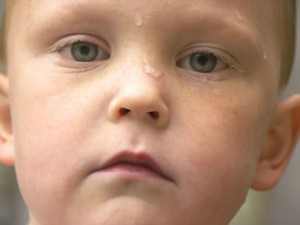Published: September 7, 2011

Parents who strongly disagree may not be very motivated to find a solution when they hear that they must spend two full hours with a mediator. Photo: Morguefile.
Four out of ten child custody cases which are heading to court end in agreement following mediation. Mediation produced agreements in 39 per cent of cases which were destined for legal proceedings.
“This is a surprisingly high proportion, considering that the parents initially disagreed so strongly that one or both wanted a court to make a decision,” says Marian Ådnanes, a senior research scientist at SINTEF.
The figures are from a recent study which SINTEF and NTNU Samfunnsforskning, the social science department at the Norwegian University of Science and Technology, has carried out on behalf of the Norwegian Ministry of Children, Equality and Social Inclusion. [continue reading…]
Published: September 1, 2011

istockphoto
oes Dad’s stress affect his unborn children? According to the results of a new study in
Elsevier’s Biological Psychiatry, it seems the answer may be “yes, but it’s complicated”.
The risk of developing depression, which is significantly increased by exposure to chronic stress, is influenced by both environment and genetics. The interplay of these two factors is quite complex, but in fact, there is even a third factor that most of us know nothing about – epigenetics. Epigenetics is the science of changes in genetic expression that are not caused by actual changes in DNA sequencing. It is these mechanisms that have been the recent focus of intergenerational investigations into the transmission of stress vulnerability. [continue reading…]
Published: August 15, 2011

Image: Fotolia
or some children, the excitement of starting or going back to school turns to fear at the bus stop or classroom door.
Separation anxiety is a real condition for many children and their parents on the first day of school, says Samuel T. Gladding, professor of counseling at Wake Forest University and author of the book Family Therapy: History, Theory, and Practice (5th Edition) (Merrill Counseling)
Not being well-prepared for the separation makes anxiety worse, Gladding says. He offers parents tips for how to avoid emotional scenes with children clinging tearfully to them when it is time to say goodbye. [continue reading…]
Published: January 24, 2011
As a sequel to the CNN video I posted earlier maybe those who share the family bed may be interested in this post by Ed Yong the Discover blogger
Pay attention. Put that down. Stop doing that. Eat that later. Would you, just, behave? These phrases are a familiar part of family life, as parents try to drum a sense of self-control into their children. Right from the start, they are taught to restrain their impulses, focus on their goals, and control their choices. This seems like a wise move, but how could you tell if such instruction actually affects a child’s fate?
Parents, of course, love to read too much into the small steps of a child’s development. But could it really be that the self-control kids learn to exert when they are very young is an indicator of the adult lives they will lead? Curious? Continue reading
Source: Discover



